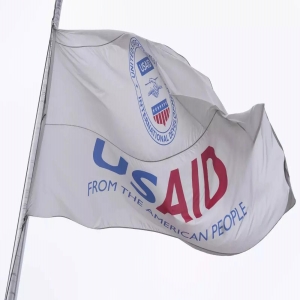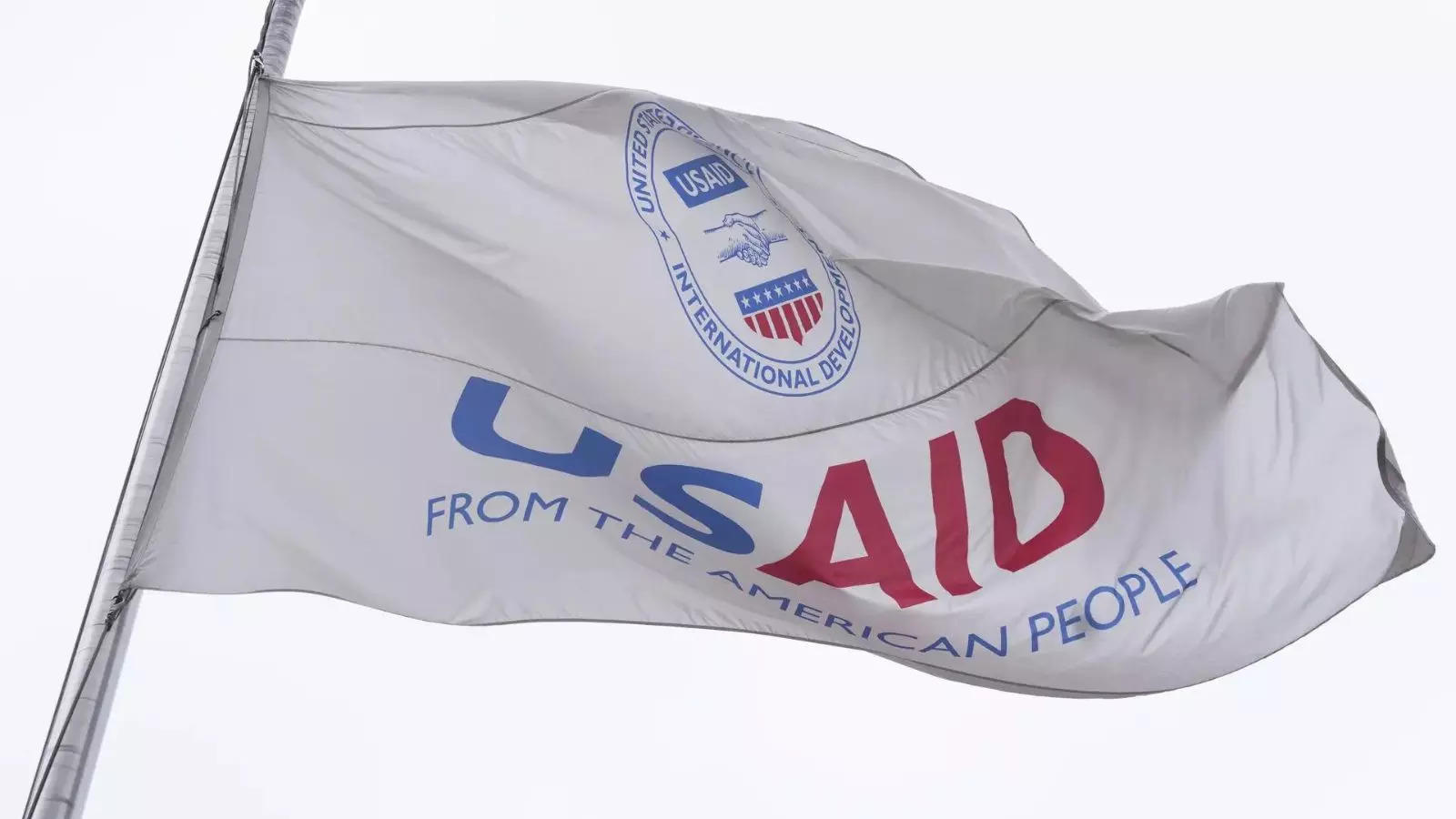
.png) Jaswant Kaur
Jaswant Kaur

Amidst this vast web of networks—albeit a network of networks—if a few websites go offline, the world won't be significantly affected. After all, if a few are taken down, they are almost instantly replaced by others, often within seconds. However, on the first day of February, one website was abruptly taken offline without fanfare, perhaps under the assumption that it wouldn't attract much attention.
The organisation's account on "X" (formerly known as Twitter) was also deleted. Yet, the event made headlines. The website belonged to USAID (the US Agency for International Development), an independent entity established by then-President John F. Kennedy in 1961 to assist conflict-ridden and strategically important nations by alleviating poverty, disease, and other crises. In other words, USAID has been a key instrument in supporting humanitarian aid programs for the US government worldwide.
Within a couple of days, the agency directed all organisations to halt operations of all funded projects. Overnight, critical programs came to a standstill. "The recipient shall not resume work under this agreement until notification has been received in writing from the Agreement Officer (USAID) that this award suspension has been cancelled," the directive stated, per published media reports. Hundreds of thousands of people globally lost their jobs overnight with a single stroke—an outcome no one could have imagined, even in their wildest dreams.
Soon after, another website, usaidstopwork.com, was launched to estimate the global and US economic and job losses. The website invited individuals and organisations to sign a petition urging the government to reconsider its decision. Nevertheless, crucial humanitarian aid has been suspended, a move attributed to the Department of Government Efficiency (DOGE), headed by tech entrepreneur Elon Musk.
In India, USAID has played a pivotal role in the country's development, supporting healthcare, education, disaster resilience, and economic reform initiatives. Thanks to US foreign aid, India has emerged as one of the world's fastest-growing economies. USAID's work in India has focused on combating infectious diseases, strengthening national immunisation programs, family planning, maternal and child health, HIV/AIDS, improving sanitation, empowering women, and enhancing energy security.
For instance, USAID has been instrumental in tackling tuberculosis, a major health burden in India. Through partnerships with the Indian government and NGOs, USAID has provided funding, technical support, and innovative solutions to detect and treat TB cases, particularly in slums and underserved regions.
A sudden halt in funding could derail years of progress, leading to a surge in TB infections and fatalities. Similarly, USAID-backed sanitation programs have been far more crucial than India's Swachh Bharat Abhiyan (Clean India Mission), improving access to clean drinking water and better hygiene facilities.
Moreover, the agency helped India establish eight agricultural universities with state-of-the-art research capabilities, 14 regional engineering colleges, the first Indian Institute of Technology (IIT), and the first municipal bond for water supply and sanitation infrastructure development. In fact, the green building movement and key advancements in capital market transparency were achieved with USAID's financial support. Today, India's status as a polio-free nation is primarily due to US aid.
In other words, without US government aid, India could not have dreamed of achieving a 5 trillion dollar economy today. While financial support has decreased under the Narendra Modi government, does it mean crucial development work ceased during this period? Absolutely not.
According to official figures, USAID spent approximately $40 billion on global humanitarian aid programs in 2023, with a significant portion allocated to Asia, sub-Saharan Africa, and Europe, primarily for humanitarian efforts in Ukraine.
However, with the Trump administration aiming to dismantle the agency, India and other nations stand to lose significantly. A report in a leading national daily stated that India was set to receive $140 million through USAID in the current financial year. Will this not affect India's economic status? Can India afford to lose such funding, especially when striving to meet fiscal consolidation targets? While India has reduced its fiscal deficit from over 9 per cent in 2020 (the pandemic year) to around 6 per cent in 2024, the figure remains troubling. Additionally, India's growth rate is expected to slow to 6.4 per cent, according to Moody's latest estimates.
Moody's noted, "India is facing a bumpy road in 2025. A weakening rupee, declining foreign investment, and volatile inflation are the areas of greatest economic risk. Changes in fiscal and monetary policy, likely in the first half of the year, are needed if India is to achieve 6.4 percent growth." In this context, generating or printing 140 million dollars to support critical development work will be challenging. While the government may deny that USAID's withdrawal won't affect India or claim independence from foreign aid, the reality is that bridging this deficit will be an uphill task.
Modi's recent visit to the US followed Trump's decision to halt USAID funding. While the visit focused on bilateral trade agreements and Mission 500—aiming to double bilateral trade from $200 billion to $500 billion by 2030—it would have been ideal to address the gap created by USAID's withdrawal. However, the issue was not discussed. Modi may have used the slogan "Make India Great Again" to impress the US president, but how can India achieve greatness in light of such decisions?
Instead, the move has sparked a political storm, as Trump halted $21 million in financial aid approved by his predecessor. At the FII PRIORITY Summit in Miami, Trump accused the Biden administration of meddling in Indian elections: "Why are we giving $21 million to India? They have a lot more money. They are one of the highest-taxing countries in the world; we can hardly get in there because their tariffs are so high. I have a lot of respect for India and their Prime Minister, but giving $21 million for voter turnout?" he said.
This statement has fuelled a war of words between Congress and BJP politicians, with the BJP accusing Congress leader Rahul Gandhi of aligning with "global networks seeking to undermine India's strategic and geopolitical interests while acting as a tool for foreign agencies." However, it is worth noting that India's Ministry of Home Affairs has robust mechanisms to monitor any misuse of foreign funds.
Regardless, the Trump administration's short-sighted decision will have serious repercussions. The move will have far-reaching consequences, from disrupting healthcare programs to undermining clean energy efforts and straining diplomatic ties. At a time when the world faces pressing challenges—climate change, pandemics, and economic instability—this decision weakens a crucial pillar of Indo-US collaboration. Unfortunately, India has missed its chance to voice its concerns.